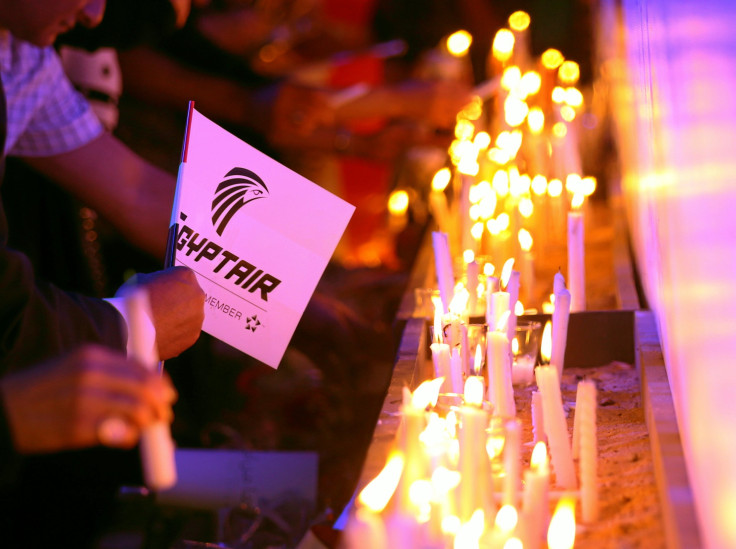EgyptAir Flight 804 Investigation: Cockpit Voice Recorder Indicates Fire On Board

As investigators continue to try and determine the reason that led to the crash of EgyptAir Flight 804 on May 19, analysis of the plane’s cockpit voice recorder suggests that there was a fire on board and the pilots tried to extinguish it, according to reports Tuesday.
The information is in coherence with previous data that showed there was smoke in the bathroom and onboard equipment, Egyptian investigators said. However, they are yet to issue an official statement on the development.
Cairo-bound Flight MS804, which took off from Charles de Gaulle Airport in Paris, flew normally in clear skies before taking a 90-degree left turn and then a full 360-degree turn from the right. The aircraft then reportedly dived from 38,000 feet to 15,000 feet and went off radar at an altitude of about 10,000 feet. It then crashed into the Mediterranean Sea between the Greek island of Crete and the Egyptian coast. Sixty-six people on board were killed in the crash.
On Sunday, the Egyptian Accident Investigation Committee said all human remains mapped at the crash site of the EgyptAir plane were recovered. They were expected to be given to forensic authorities and prosecutors for DNA analysis.
Egypt’s tourism is likely to be hurt by the recent plane crashes — including the bombing of a Russian Metrojet airliner over the Sinai Peninsula last October that killed 224 people. Following the downing of the plane — which took off from Sharm el-Sheikh airport — Russia halted all flights to and from Egypt, a popular holiday destination among Russians.
“Before the crash we had estimated that tourism revenue would drop by $3.5 billion in 2016,” Jason Tuvey, economist with Capital Economics, the London-based consultancy, told the Financial Times in May. “That figure may now increase. Clearly pressure on the [Egyptian] pound is now mounting and the central bank will need to devalue again.”
The country is also reeling under political turmoil since the 2011 uprising that dethroned long-time strongman Hosni Mubarak. The ensuing violence and economic troubles, along with the chaos in neighboring Libya, also negatively affected the tourism industry in Egypt. In March, the country saw a 47.2 percent decline in tourists, compared with the same month in 2015, which saw 440,700 visitors, Financial Times reported.
Last Wednesday, the Telegraph reported that Egypt is planning to set up a "safe and secure environment" with a “high level of security” at airports across the country.
Following the EgyptAir crash, Yehia Rashed, Egypt’s tourism minister, said the crash would not affect government plans to attract millions of visitors in 2017. The ministry is aiming for 10 million tourists next year, Rashed said, who would contribute $12 billion in revenue. Furthermore, the North African nation will not reduce prices for tourists because the country already offers “good value,” he said.
“Nothing has changed in my view,” Rashed said. “We’re going to work hard, we’re going to set high targets and we’re going to do everything we can do to maximize tourism revenues.”
© Copyright IBTimes 2024. All rights reserved.












